When farmworkers demanding a salary increase from R69 to R150 per day resumed their strike in the Boland and Hex River Valley last Wednesday, it was unlikely the protests would be peaceful. Starting off in previous hotspots Wolsely and De Doorns, violent protests soon flared up in Grabouw, Villiers Dorp, Bonnievale, Clanwilliam, Wellington, Barrydale and surrounds.
There have been ongoing discussions between unions, farmers and some employees, as well as calls for National government to intervene in the deadlock. Strike leaders say that they are not just protesting for a wage increase alone, but for better working conditions on farms. A silver lining is that COSATU has just announced that an agreement was reached in Clanwilliam with a significant number of farmers. COSATU says the agreement includes a wage increase to R105 per day and a commitment to no disciplining and victimisation of workers linked to participation in the strike.
A SAPA report estimates that 167 people have been arrested since last week, mainly for public violence. While angry tyre burning and stone throwing protesters have been accused of intimidating non-striking workers, journalists and health care officials (leading to Western Cape Department of Health again taking the decision to close four clinics in the region), it is the police who have come under the most fire for their alleged use of disproportionate force.
Last Wednesday morning when a police van suddenly roared off, for no apparent reason, towards a crowd trickling in to the sports stadium in De Doorns from the nearby Stofland informal settlement, a Bawusa member shouted: “Why are police doing this? Why can’t they just let the people come? This is what is causing problems.”
Not long after that Nosey Pieterse, the controversial secretary general of Bawusa Agricultural Workers Union of South Africa, was allegedly shot in the arm with a rubber bullet by police. While water canons, tear gas and rubber bullets are already considered by many to be a heavy-handed approach, De Doorns community members are now alleging that the recently deceased Letsekang Tokhwane was beaten and shot in the head by police. Cape Winelands Department of Health Communications Officer Joanne Otto confirmed that the victim died in Tygerberg hospital on Monday night as a result of rubber-bullet injuries.
Farmworker and community leader Shaun Yamta says “Tokhwane was shot at close range by police, in front of the community. Ask anyone who lives here if you don’t believe me. We all saw it. The police didn’t even try to hide what they did.”
Yamta went on to claim that Tokhwane had not even participated in the strike action and that he was inside his home or business in Stofland when Nyalas drone into the informal settlement. He claims police forcefully entered Thokoene’s home or business and escorted him outside before shooting him.
It has been alleged that SAPS started intimidating workers before the strike started. NGO Women on Farms told Groundup that one of their members, a seasonal worker living in Rawsonville, who did not want to be named publicly for fear of reprisal, was called up by the Rawsonville Police Station Commander on Monday and warned that if she joined a march on Wednesday the police would “skiet hulle” (shoot them)… maar ek se, ons sal niks gedoen nie… mense was bang vir die einers en die polisie (but I replied that we wont do anything… people are scared of the [farm] owners and police)”.
When Groundup approached SAPS to respond to a number of outstanding questions their Western Cape Communications division gave us the run around by refusing to engage in telephonic interviews and instead requested that Groundup forward all questions to them via email. 24-hours later Groundup has yet to get a reply to most of the issues we raised.
With regards to the circumstances surrounding the death of Tokhwane, SAPS Western Cape Captain Van Wyk writes: “We can confirm that a 23 year old male was taken to hospital by unknown civilians and that he subsequently died due to injuries sustained during a shooting incident in De Doorns. Further enquiries regarding this incident must be forwarded to IPID, as they are investigating this case.”
GroundUp understands that autopsy results for Tokhwane are imminent.
SAPs provided no information however on whether any investigations have been launched or arrests made in relation to either the incident of protesters setting alight the car of Cape Times journalists last Wednesday or ANC Boland chairperson Pat Marran allegedly being shot in the face by a private security guard hired by a De Doorns farmer last Friday. They also did not respond about protester leader Nosey Pieterse’s claim that police shot him in the arm with a rubber bullet.
Yamta went on to tell Groundup that many people living in the Stofland informal settlement have been injured during the strikes, but they are too afraid to seek medical attention because they think they may get arrested at hospitals. On the flipside Cape Winelands Department of Health Communications Officer Joanne Otto says that the strikers themselves are intimidating health care workers in the area.
“All three Clinics in De Doorns (and one in nearby Wolsely) continue to be closed today. Over the past two days there are no mobile services or home based care facilities being delivered either,” she says.
In a statement Western Cape Minister of Health, Theuns Botha, wrote, “We cannot afford to put our health workers who work at these clinics at risk, and so are forced to close the clinics…. It is quite ironic to think that the issues at stake for farm workers are about human dignity but at the same time the situation is depriving our patients of a basic right, as set out in the constitution - the right to health services.”
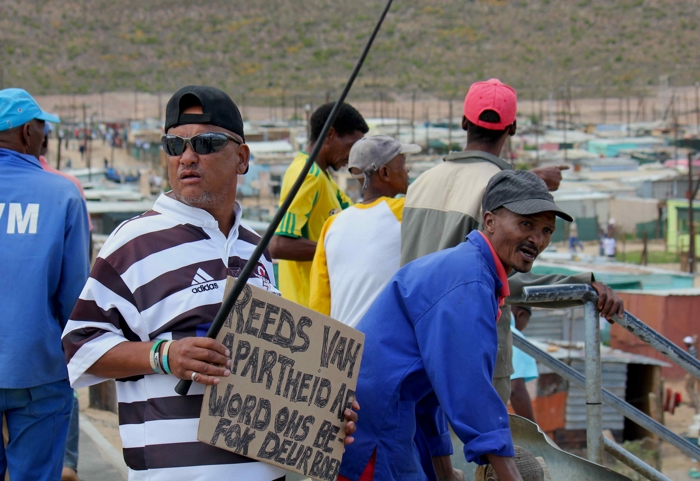
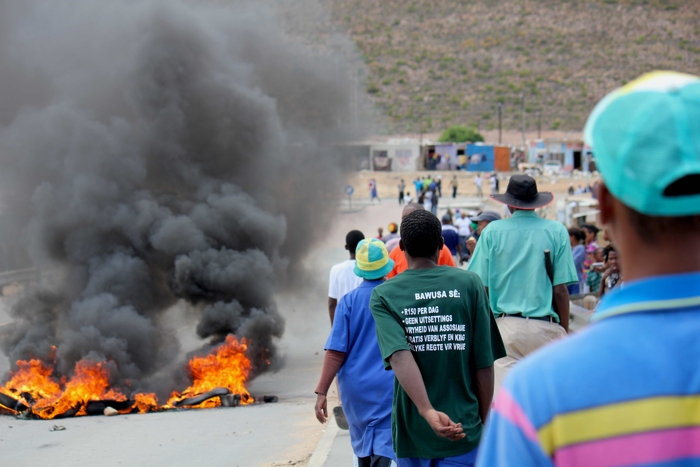
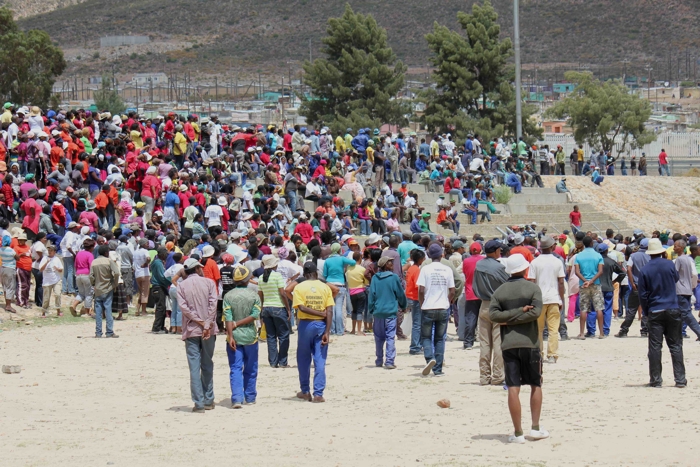
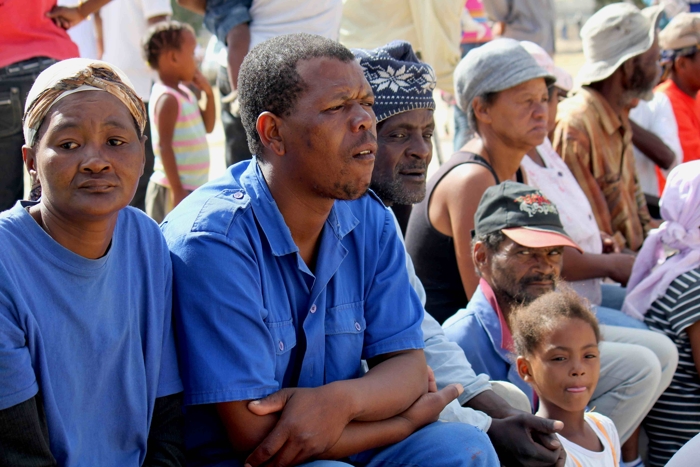

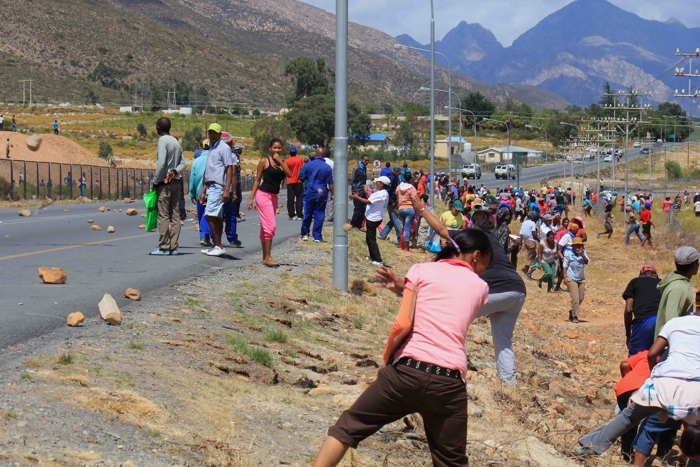
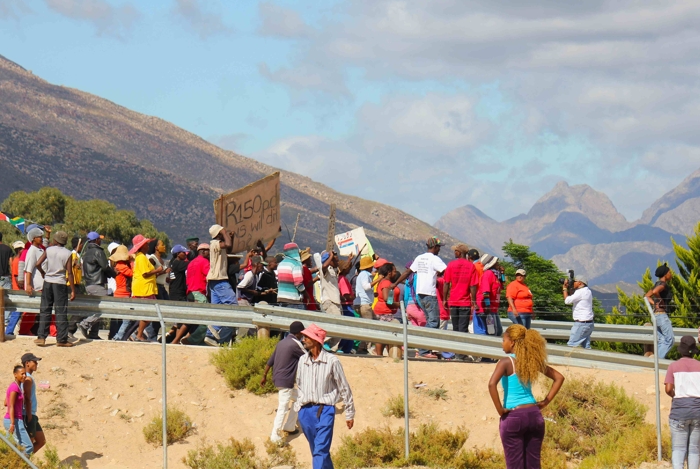
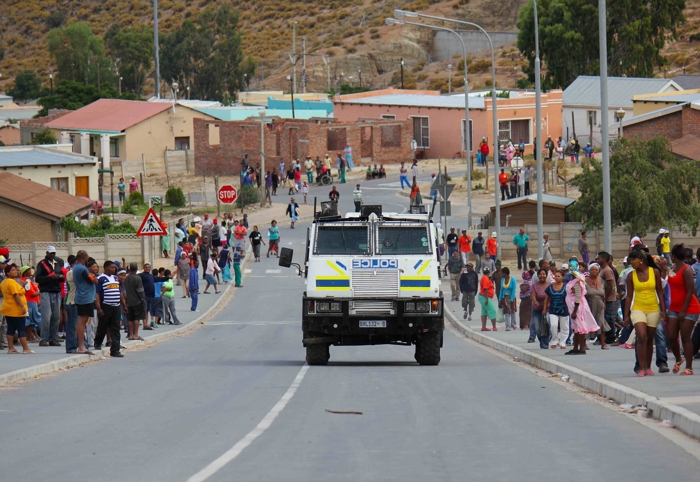
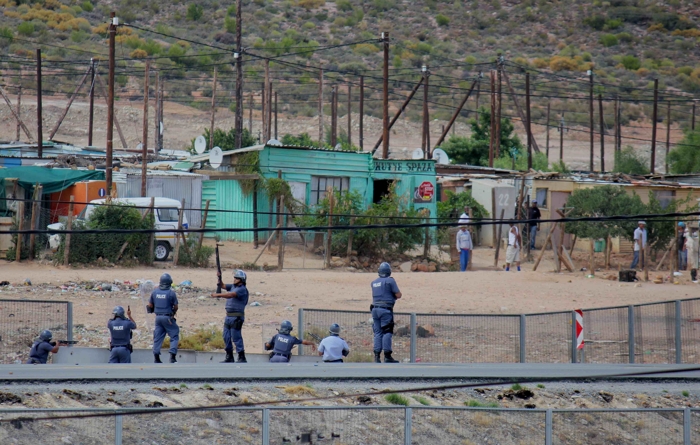
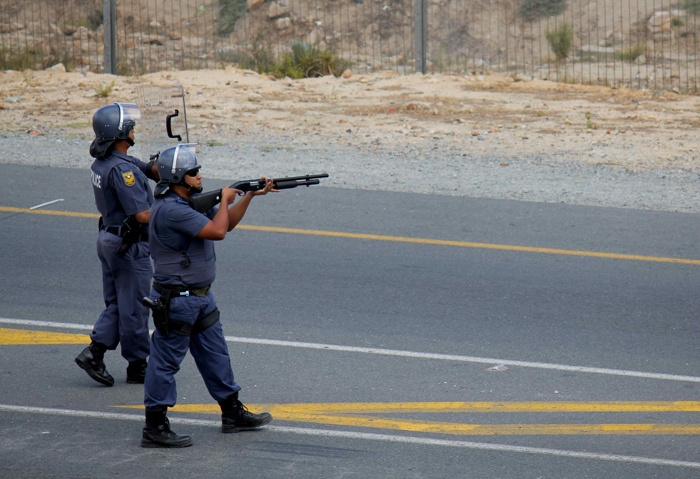
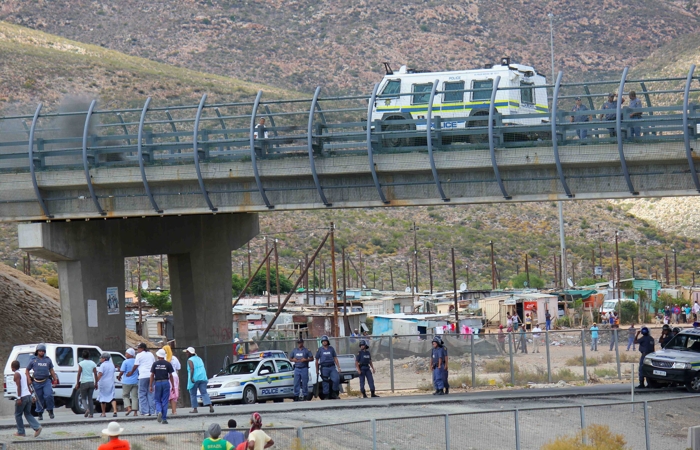
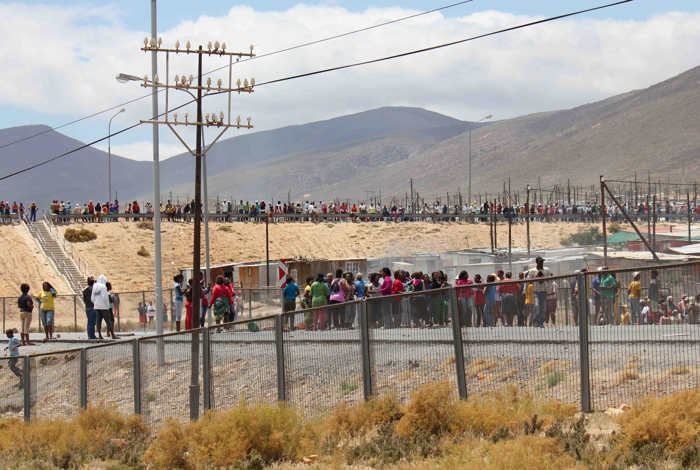
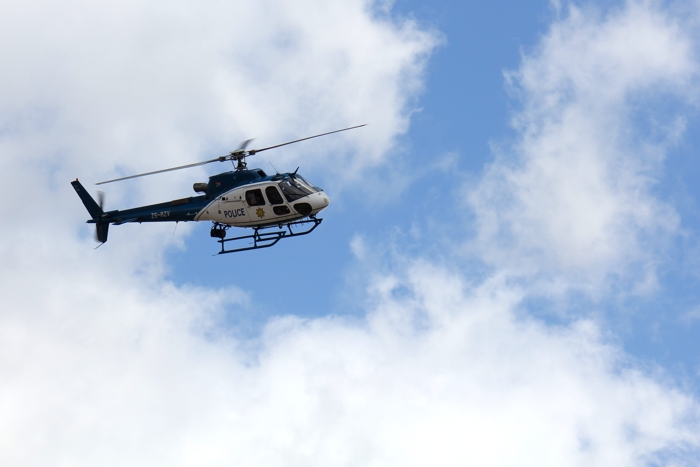
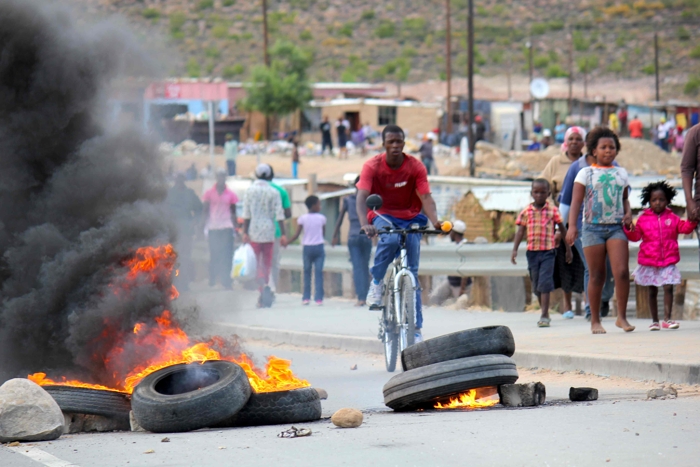
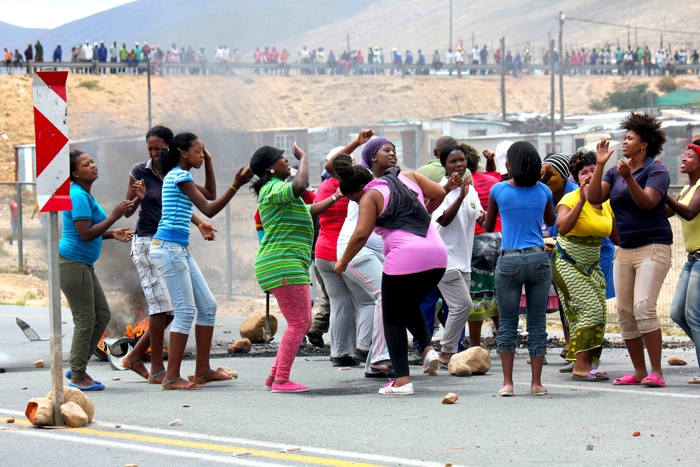
Editor’s note: Corrections were made to this article shortly after it was published. Specifically, allegations on the type of bullet Letsekang Tokhwane was shot with were removed.